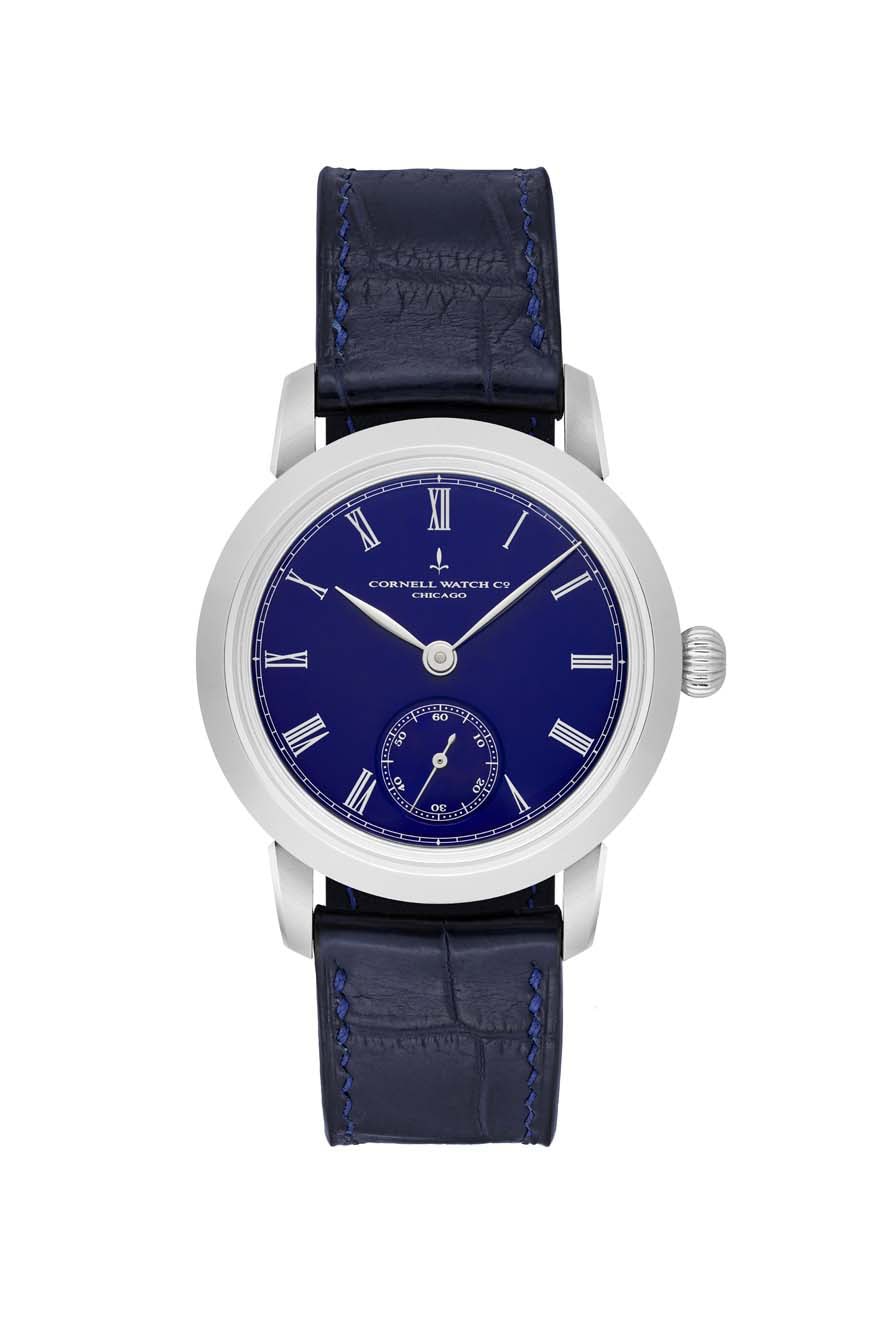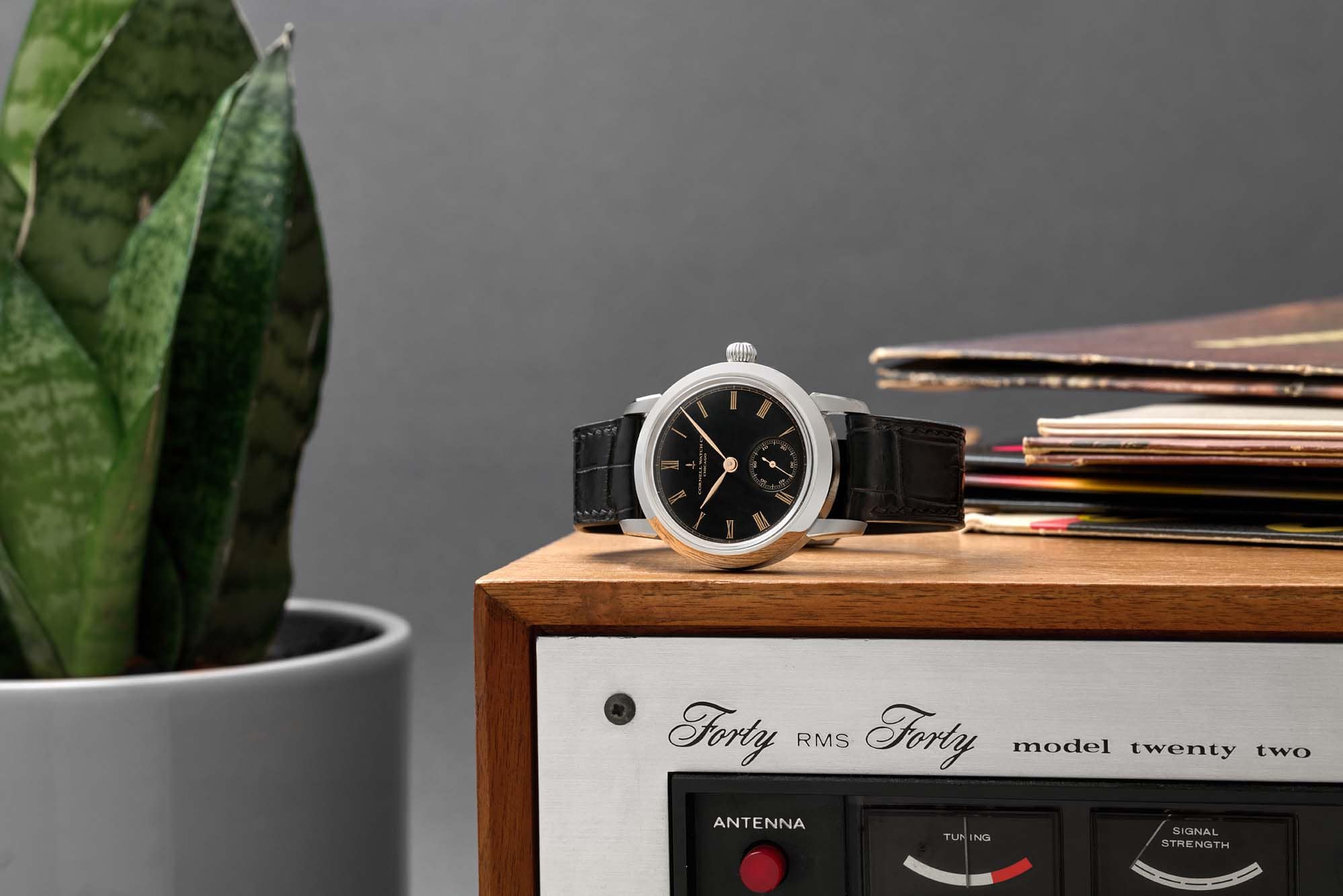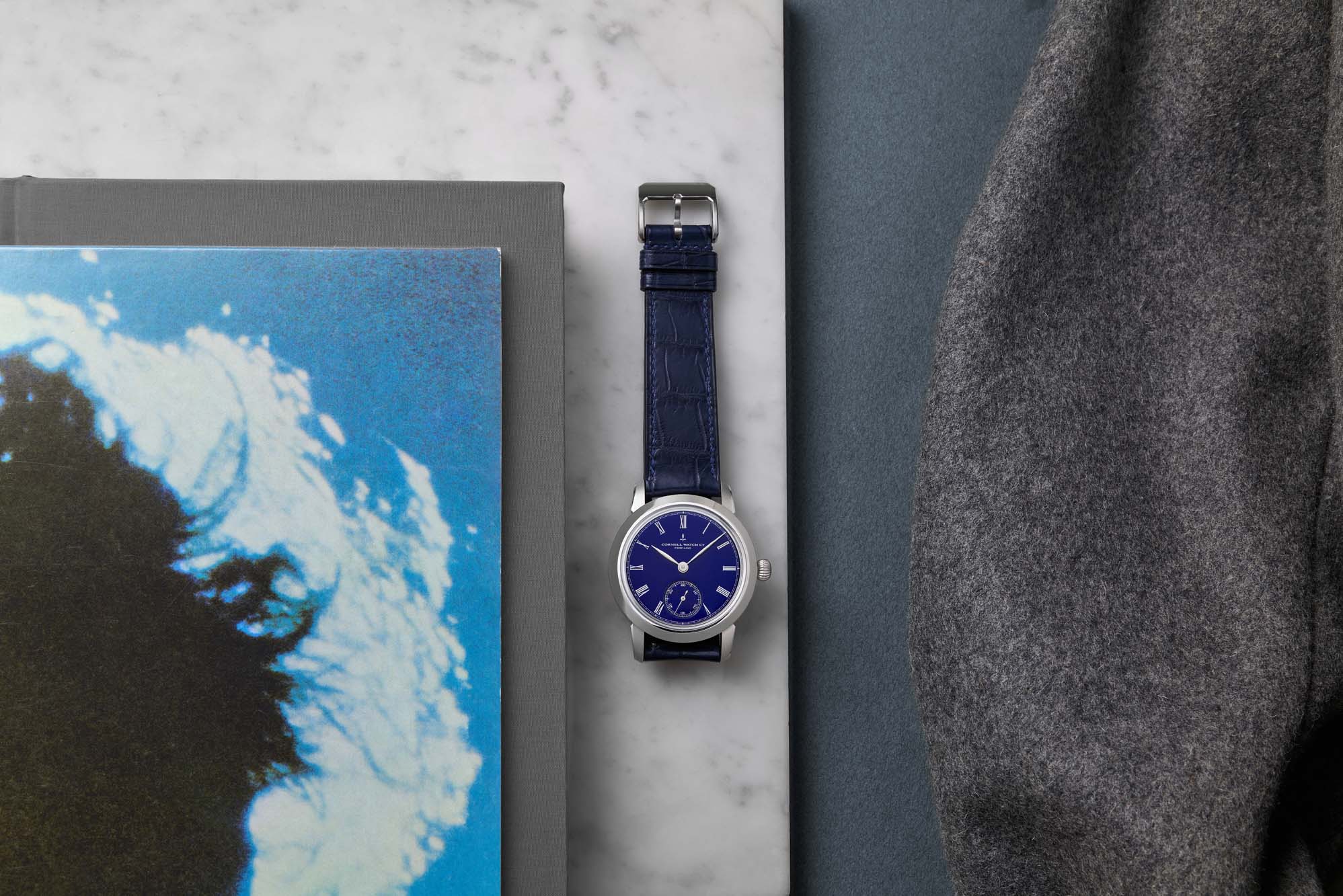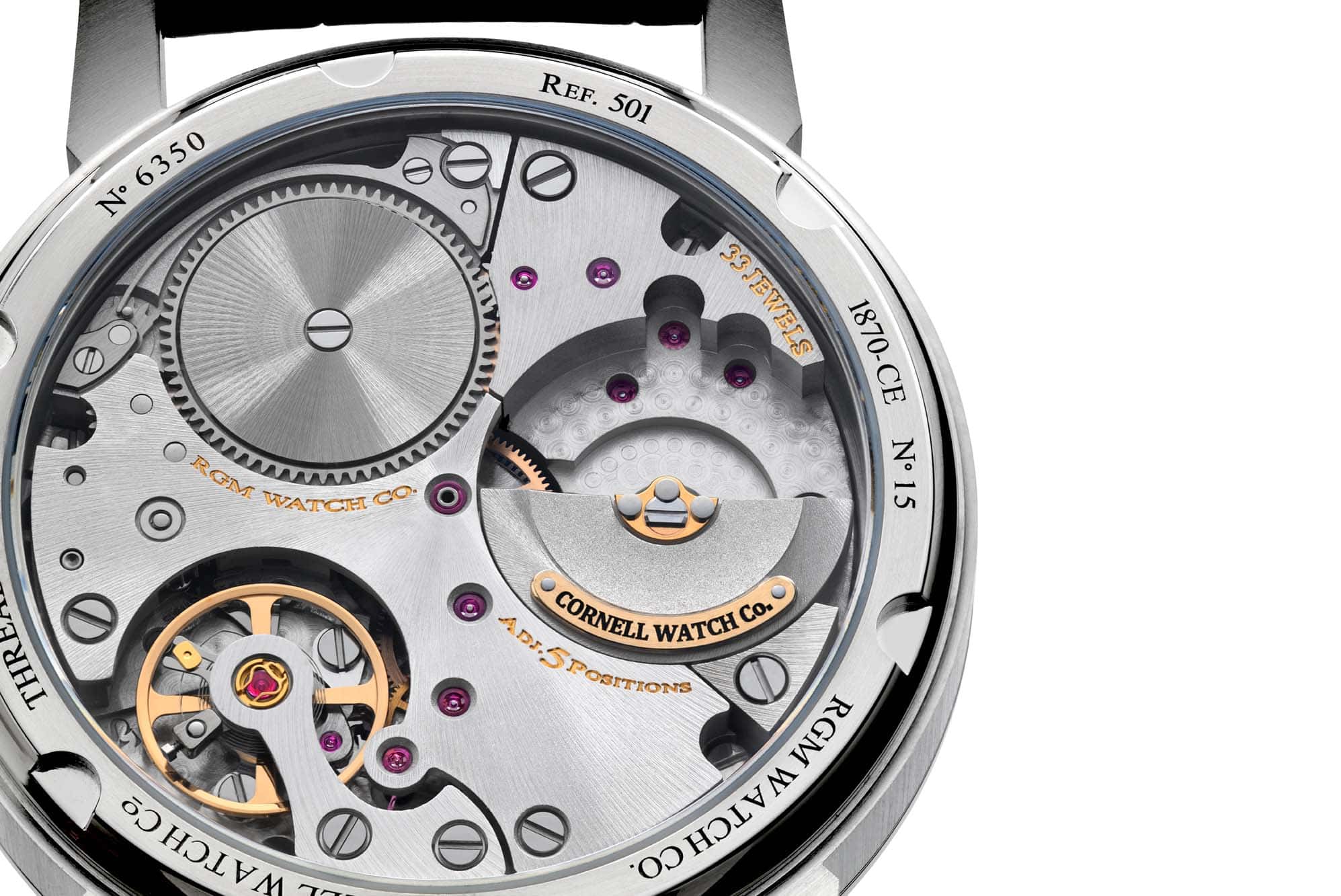When John and Chrissy Warren relaunched the Cornell Watch Co. in 2023, it was something of an experiment. They wanted to revive luxury watch making in America … at scale. Now, with their launch year behind them, the Warrens have proven there is an appetite for high-end American watches, having sold and delivered their first 15 build slots for the beautifully crafted 1870 Classic Enamel. Now the Warrens are moving on to the next phase of their company: moving from producing small numbers of artisanal watches to producing hundreds of watches a year that compete in quality with Swiss brands.
Part of the appeal of Cornell’s first watches in the relaunch, the 1870 Classic Enamel, was that the watch was put together by America’s leading watchmaker, Roland Murphy. Murphy’s reputation as an artisan who produces work of the highest quality made him an ideal partner for an American brand. His name leant credibility to the project and his years of experience running RGM Watch Co. meant the watches would be beautiful examples of craftsmanship. But relying on RGM Watches to assemble Cornell’s watches had a downside: the high-level hand-finishing they utilize means RGM doesn’t produce huge quantities of watches. And, of course, Cornell isn’t even the center of RGM’s business, meaning the 15 Cornell 1870 CEs produced by RGM in 2024 — 16 if you include a piece unique that was auctioned off — represent roughly what could be expected from the partnership year-over-year: small batches of incredibly high-quality watches.
Enter Zach Smith, the proprietor of Hour Precision, a micro-machining workshop that manufactures medical components, aerospace components, and semiconductor equipment. Smith has a background as a watchmaker and creates extremely tiny and precise components using many of the same machines used by major Swiss brands like IWC. And in December, it was announced that Hour Precision and Cornell are partnering to create “a vertically integrated manufacturing operation” to build watches in the United States.
Cornell and RGM will still collaborate on a number of the 1870 CEs each year — and two new colorways launching today, one with a blue dial and the other with a black dial and gold hands, suggest there’s still room for evolution and growth in that partnership. But the partnership with Hour Precision gives Cornell the chance to increase their customer base. Unlike the 1870 CE, the models produced by Hour Precision will be “in the hundreds of units,” according to Warren. And with the industrial processes in place at Hour Precision, the new lines of watches can also be produced faster and cheaper than the roughly $12,000 1870 CE.
“If we use RGM as an example, they make less than 200 timepieces a year, all at very high quality, right? The question is, how do we get that number from a high of 200 to 500 to 1000, while having quality that rivals the most prestigious Swiss and German brands?” said John Warren in an interview. “And that’s something that hasn’t happened in the US in the last 60 years. And so that’s the mission and the vision with Hour Precision.”
The new watch line is being developed with customer feedback in mind. It’s thinner than the 1870 CE, with a German silver dial, and as Warren wanted to create a proportional and classic-feeling dress watch, he drew inspiration from “the 1930s and 1940s, 1950s design from not only Swiss brands but also American brands.”
This represents something of a design evolution for Cornell, as the 1870 CE and piece unique pulled design elements from Cornell’s catalogue of pocket watches. Since the original Cornell shut down before the advent of the wristwatch, it’s not possible to recreate a midcentury Cornell, so Warren looked elsewhere for inspiration.
“We took a lot of influence from classic Patek reference 96, a lot of classic Calatrava type Omegas, Longines. And Hamiltons of the time,” said Warren.
The new model will, however, continue to have Roman numerals, subtly nodding to Cornell’s pocket watch designs.
But the most exciting aspect of the partnership with Hour Precision is the potential to make Cornell’s watches fully made in America. The Cornell 1870 CE features a case, strap, and enamel dial made in the United States — although the new colored dials come from the highly respected Swiss dial maker Donzé Cadrans — but the movement is Swiss, made by Schwarz Etienne. Warren has been clear from the start that he dreams of bringing large-scale end-to-end watch production back to the United States, and Hour Precision has experience not just building watch components, but whole movements.
Warren says there’s the opportunity to modify an existing Hour Precision movement and that they’re in R&D for a wristwatch movement that’s effectively a miniaturized version of a Cornell pocket watch movement.
It’s a fun development, but an expensive one. Designing and developing new watches requires a great deal of money up-front, as Cornell is investing not just in the newest watch release but in “processes that can help us scale at high levels of precision and quality.”
“There’s a lot of experimentation,” said Warren. “So we’re not only using classic watchmaking techniques that you’d see in Switzerland on these courses, but we’re also bringing in all of the knowhow that we have from the United States and parallel industries such as aerospace, such as robotics, such as semiconductor.”
The first of this new line will be announced sometime in the next few months, and Warren said they’re already thinking about the next two models Cornell and Hour Precision will produce. While the 1870 CE was sold with a lottery system which saw hundreds of people express interest, the Cornell/Hour Precision watches will have an order window in order to hopefully let everyone who is interested have the chance to get a Cornell watch.
Warren said the biggest lesson he’s learned from his experiences with Cornell thus far is that there is a lot of enthusiasm for American watchmaking — but that customers want to make sure the product they’re getting isn’t just skating by on the “Made in America” tag.
“American customers are rooting for our success. They’re rooting for other American brand successes. But if you don’t bring a product that’s competitive, then it’s not something that customers are interested in, and we appreciate that and understand it,” said Warren. “And so we hope that the products we bring out, whether it’s really bespoke hand finishing done with RGM or whether it’s with Zach Smith at higher volume, we hope that and we anticipate based on the work we put into it, that they will rival other brands, that they could have from Switzerland or Germany.” Cornell Watch Co.






